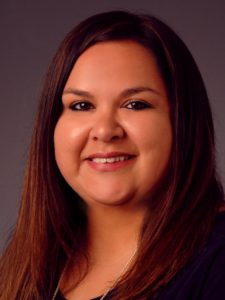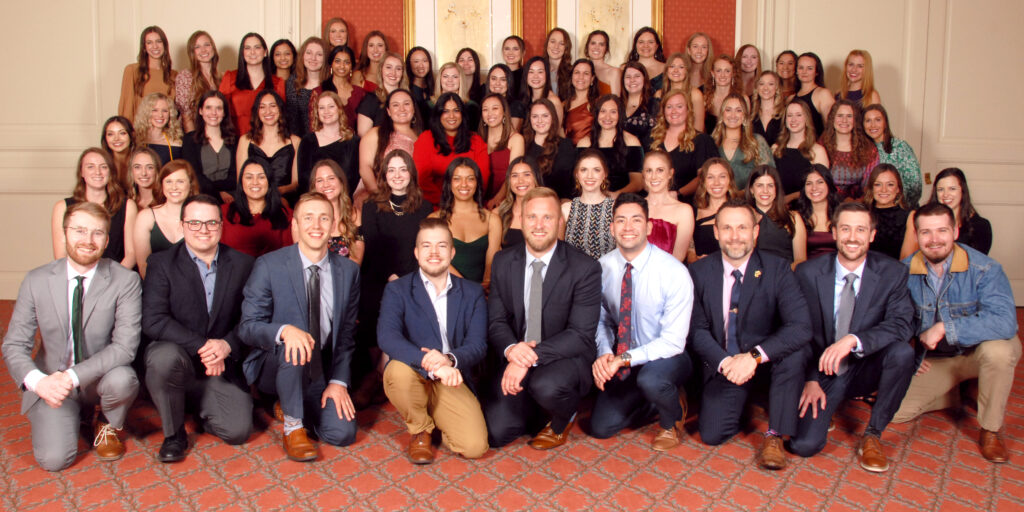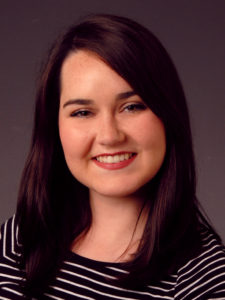Precepting Physician Assistant Students
Preceptor – Instructional faculty member who provides student supervision during supervised clinical practice experiences.
Are you considering becoming a preceptor for physician assistant (PA) students?
This is an exciting commitment to educate the next generation of Physician Assistants. The experiences obtained in your established clinical setting are critical for the student’s learning success and an integral part of the teaching program, by the synthesizing of concepts and application of principles for quality health care delivery. The PA student works closely with preceptors and will forever remember them as a role model, learning from advice and watching the example. Through supervision, students progressively develop skills and clinical judgment necessary to become a practicing PA. This includes taking patient’s history, performing physical examinations, effective communication, accurate and effective physical diagnosis, recording and reporting succinctly, assessing problems and developing plans with a logical approach to further studies and therapy.
Interested in Precepting?
If you are interested in precepting Physician Assistant students, please contact our Clinical Site Coordinator at tiffany.gardner@unthsc.edu
Preceptor Responsibilities
Preceptor Responsibilities Include
Preceptor responsibilities include, but are not limited to, the following:
- Orient students at the onset of the rotation with the practice/site policies and procedures and review the expectations and objectives for the rotation.
- Provide ongoing and timely feedback regarding clinical performance, knowledge base, and critical thinking skills. This should be done informally with the student at a designated time twice weekly. Spend time with the student each week in a candid summary discussion as to whether each is meeting the other’s needs and expectations, and what changes need to be made in the roles and relationship. Feedback should formally be reported to the program in the form of end-of-rotation evaluations.
- Demonstrate clinical activities to aid in the development of clinical skills and ensure proper patient care.
- Delegate to the student increasing levels of responsibility for clinical assessment and management as appropriate to the student’s experience and expertise.
- Participate in the evaluation of clinical skills and medical knowledge base through the following mechanisms:
- Direct supervision, observation, and teaching in the clinical setting
- Direct evaluation of presentations (including both oral and written)
- Assignment of outside readings and research to promote learning.
- Dialogue with the clinical team during site visits to evaluate student progress and assist the learning process.
- Audit charts to evaluate the student’s ability to develop appropriate and complete progress notes, histories, physical examinations, assessments, and treatment plans after each visit.
- Complete and promptly return the evaluation forms provided by the program reflecting on student knowledge and skills as well as their improvement throughout the rotation.
- Maintain an ethical approach to the care of patients by serving as a role model for the student.
- Model cultural competency through interactions with patients.
- Provide timely feedback to the student and the program regarding student performance.
- Promptly notify the PA program of any circumstances that might interfere with the accomplishment of the above goals or diminish the overall training experience.
Precepting is an integral part of the a PA’s education. Physicians (MD/DO), PAs, and Nurse Practitioners can precept PA students. Clinical mentoring offers you the opportunity for professional and personal development while mentoring PA students during the clinical phase of their PA program education. Preceptors serve as role models for the students providing guidance and teaching.
Clinical Rotation Assignments
Clinical rotations are assigned by the program faculty based upon the needs of the student and upon availability of clinical sites. The PA student is not required to arrange, provide or solicit their own clinical rotation sites.
Benefits of Precepting PA Students
- Adjunct Faculty Status
- Earn CME credits
- Recognition awards
- Opportunities to guest lecture
- Access to our online Gibson D. Lewis Library resources
- Gibson D.Lewis Library Research Services include:
- Over 120 databases and more than 36,000 journals
- Point of Care Tools Up-To-Date (with CAT1 CME), Pubmed, LexiComp, Micromedex, VisualDX, Research Databases, Academic Search Complete, CINAHL Complete, Cochrane Library, Global Health, PsycINFO, PubMed Scopus, SportDISCUS , and Web of Science.
- Journals American Family Physician, Annals of Internal Medicine, BMC Family Practice, BMC Medicine, CMAJ, Family Medicine, JAAPA, JAMA, JAMA Internal Medicine, JAMA Pediatrics, JAOA, JPAE, JAGS, Lancet,New England Journal, PLOS Medicine, Pain Medicine, Mayo Clinic Proceedings, Physical Therapy, Spine, Stroke, and many more.Gibson D. Lewis Health Science Library serves as the designated Regional Medical Library (RML) for the National Network of Libraries of Medicine, South Central Region (NNLM SCR). The NNLM SCR applies to the the states of Texas, Arkansas, Louisiana, New Mexico, and Oklahoma.
- Gibson D.Lewis Library Research Services include:
Meet the PA Program Clinical Team
 Claudia Garcia, BBS, Senior Project Coordinator
Claudia Garcia, BBS, Senior Project Coordinator
Claudia.Garcia@unthsc.edu
Ms. Garcia works with the Director of Clinical Education and the Clinical Site Coordinator to schedule practicum rotations for clinical year PA students. In addition, she assists with student credentialing and hospital affiliations. She provides course support to the clinical phase of the program.
Tiffany Gardner, BBA, Clinical Site Coordinator tiffany.gardner@unthsc.edu
Ms. Gardner is the Clinical Site Coordinator for the program. She works to recruit and retain clinical sites and preceptors for our students.
 Katherine Davis, BBA, Administrative Coordinator katherine.davis@unthsc.edu
Katherine Davis, BBA, Administrative Coordinator katherine.davis@unthsc.edu
Mrs. Davis supports the program with setting appointments, maintaining department files and other data related documents as well as working with guest lecturers and assisting with purchasing. She supports both didactic and clinical portions of the program.
Veda Womack, MBA, PA-C, Director of Clinical Education veda.womack@unthsc.edu
PA Womack is the Director of Clinical Education as well as an Assistant Professor. She develops, monitors and refines the clinical education component of the curriculum. Facilitates quality learning experiences for students during their clinical year.
A huge thank you to our preceptors! We couldn’t have done it without all of you!
 Class of 2023
Class of 2023



Social media